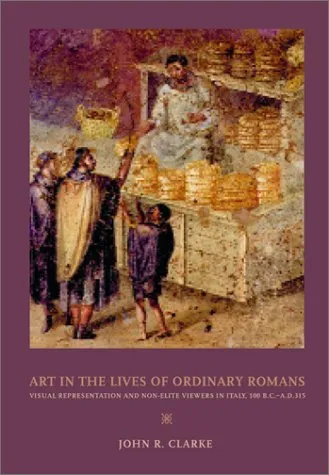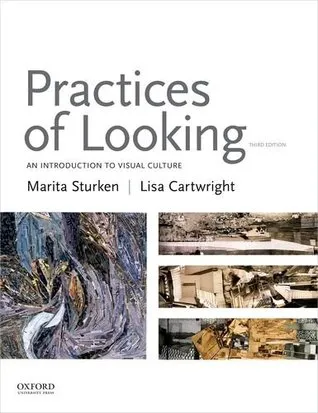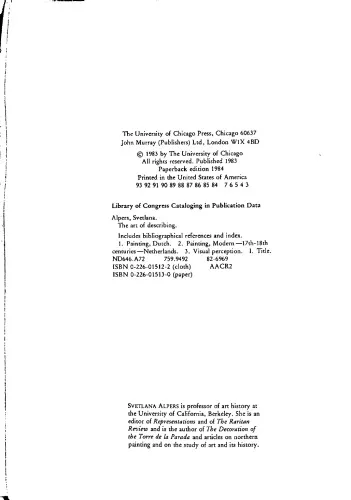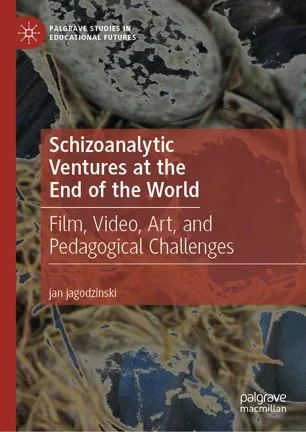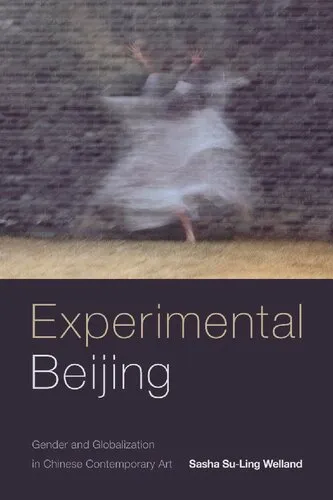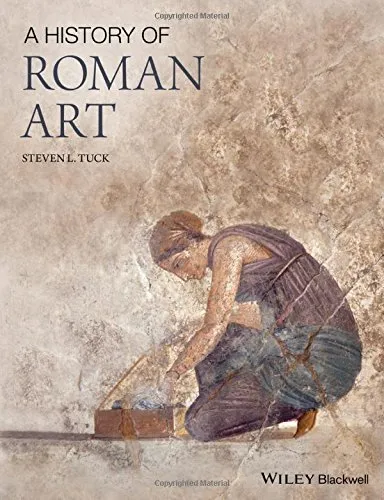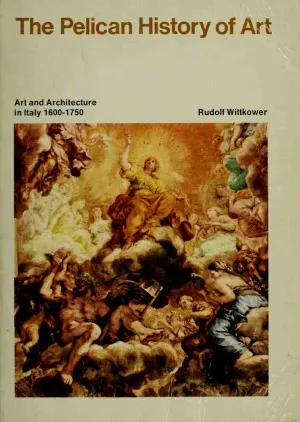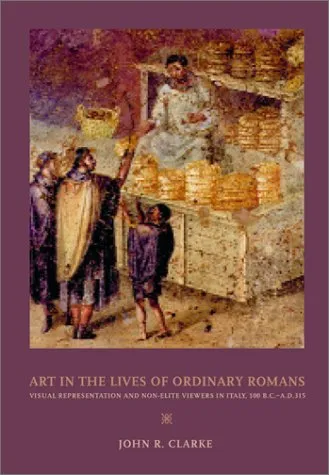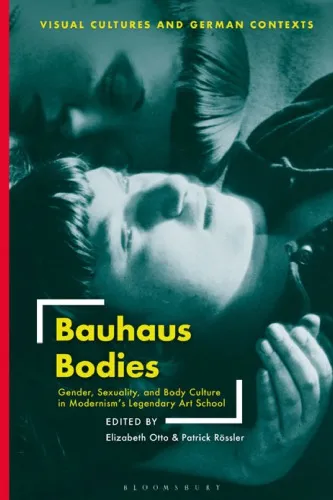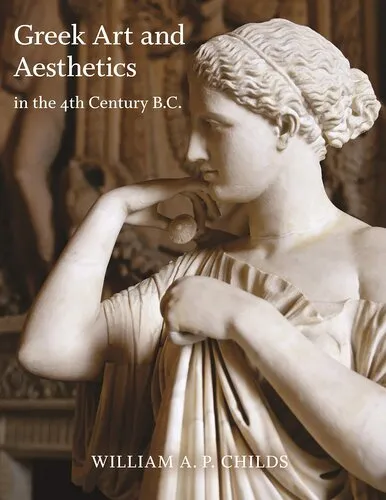Art in the Lives of Ordinary Romans: Visual Representation and Non-Elite Viewers in Italy, 100 B.C.-A.D. 315 (Joan Palevsky Book in Classical Literature)
4.5
بر اساس نظر کاربران

شما میتونید سوالاتتون در باره کتاب رو از هوش مصنوعیش بعد از ورود بپرسید
هر دانلود یا پرسش از هوش مصنوعی 2 امتیاز لازم دارد، برای بدست آوردن امتیاز رایگان، به صفحه ی راهنمای امتیازات سر بزنید و یک سری کار ارزشمند انجام بدینکتاب های مرتبط:
مقدمهای بر کتاب
کتاب "Art in the Lives of Ordinary Romans: Visual Representation and Non-Elite Viewers in Italy, 100 B.C.-A.D. 315" به قلم جان آر. کلارک، نگاهی عمیق به نقشی که هنر در زندگی روزمره رومیان عادی ایفا میکرد، ارائه میدهد. این اثر نه تنها به بررسی آثار هنری به جا مانده از دوران باستان میپردازد، بلکه از دیدگاه غیر نخبگان به تحلیل و تفسیر آنها نیز میپردازد. با نگاهی علمی و مستند، این کتاب به مخاطب کمک میکند تا فرهنگ و جامعه روم باستان را از زاویهای نوین ببیند.
خلاصهای جامع از کتاب
این کتاب در چهار بخش اصلی، جزئیات فراوانی را درباره چگونگی تعامل نخبگان و غیر نخبگان با هنر بیان میکند. در اولین بخش، توجه به زمینههای تاریخی و اجتماعی اختصاص یافته است که نشان میدهد چگونه و چرا این گونههای هنر در جامعه رومی بروز یافتهاند. بخش دوم به مطالعه محلهایی میپردازد که آثار هنری به نمایش گذاشته میشدند و مخاطبانشان چه کسانی بودند.
بخش سوم بر تحلیل نقاشیها و موزاییکهایی متمرکز است که در خانههای رومیان عادی کشف شدهاند. نویسنده به تحلیل نمادها و موضوعاتی میپردازد که در این آثار هنری به چشم میخورد. در نهایت، بخش چهارم به بررسی تاثیرات این نمایشهای تصویری بر زندگی روزمره و تفکر اجتماعی مردمان عادی روم میپردازد.
نکات کلیدی
- بررسی چگونگی تاثیر هنر و تصاویر بر دیدگاهها و رفتارهای اجتماعی رومیان عادی.
- تحلیل روابط بین نخبگان و غیر نخبگان از طریق بررسی آثار هنری.
- شناخت بیشتر از موزاییکها و نقاشیهای دوره روم و معنای آنها در زندگی روزمره.
جملات معروف از کتاب
"تصاویر بر زندگی اجتماعی و فردی تاثیر میگذارند، حتی اگر نخبگان آنها را نادیده بگیرند."
"شناخت فرهنگ و هنر غیر نخبگان، کلید فهم بهتر جامعه رومی است."
چرا این کتاب مهم است؟
این کتاب یکی از معدود آثاری است که به شکل جامعی به بررسی هنر و فرهنگ غیر نخبگان رومی میپردازد. بیشتر آثار مکتوب و تحلیلهای پیشین تا حد زیادی بر نخبگان جامعه رومی و هنرهای مربوط به آنها متمرکز بوده است. اما درک اینکه چگونه مردم عادی به هنر میپرداختند و چگونه این هنر بر زندگی و تفکر آنها تاثیر میگذاشت، دریچهای جدید به فهم بهتر جامعه رومی میگشاید. این کتاب برای دانشجویان، پژوهشگران و علاقهمندان به تاریخ و هنر روم باستان منبعی ارزشمند و مملو از اطلاعات است که به گوناگونی و عمق فرهنگی این دوران میپردازد.
Welcome to an exploration of Roman art through the eyes of those often left out of historical narratives: the ordinary citizens of ancient Rome. "Art in the Lives of Ordinary Romans: Visual Representation and Non-Elite Viewers in Italy, 100 B.C.-A.D. 315" by John R. Clarke is a compelling examination of how visual culture influenced and reflected the lives of non-elite individuals in Italian society.
Detailed Summary of the Book
The book provides a comprehensive analysis of the visual culture that permeated the daily lives of the Roman populace from 100 B.C. to A.D. 315, focusing on non-elite individuals. John R. Clarke delves into the art and artifacts found within homes, public spaces, and funerary settings, offering insights into the values, aspirations, and identities of ordinary Roman people. By classifying and interpreting various forms of visual representations like frescoes, sculptures, and mosaics, Clarke reveals the ubiquitous presence of art in these environments and the roles it played in shaping social identity and cultural norms. This work not only unravels artistic expressions available to the masses but also situates them within the broader spectrum of Roman society's visual and cultural dynamics.
Key Takeaways
- Art served as a universal language that crossed social and economic boundaries, enabling ordinary Romans to express collective values and personal aspirations.
- Despite the elite-driven narratives of Roman history, non-elite artisans and their works played a significant role in the everyday life of Rome, impacting the cities' social and economic structures.
- The consistent usage and evolution of visual representations in working-class settings reflect a complex interaction between economic access and cultural ambition.
- Clarke provides an alternative viewpoint that highlights the symbiotic relationship between art and society, rather than viewing art as merely a backdrop to elite narratives.
Famous Quotes from the Book
"The art of the ordinary is not merely a reflection of its time but a statement of human resilience and aspiration in the face of societal limits."
"Visual culture in ancient Rome was not a privilege afforded only to the elite. It pervaded markets, baths, and common dwellings, asserting its vitality in the shared spaces of life."
Why This Book Matters
Clarke’s "Art in the Lives of Ordinary Romans" significantly contributes to our understanding of Roman culture by shifting the focus from monumental art and architecture typically associated with emperors and aristocrats to the everyday art forms of the majority populace. This revisionist perspective imbues Roman history with a more nuanced complexity, where ordinary people are active participants and consumers of cultural expressions. As scholarly discourse increasingly embraces social history's themes, Clarke’s work offers a foundation for further inquiry into how non-elites contributed to the artistic and cultural fabric of their societies.
The book stands as an essential resource for both classical scholars and casual enthusiasts of Roman history, bridging gaps between archaeological findings and ethnographic interpretations. Clarke’s meticulous research presents a balanced view that champions the cultural endeavors of the ordinary Roman, providing insights that both enrich the historical record and challenge conventional narratives.
دانلود رایگان مستقیم
شما میتونید سوالاتتون در باره کتاب رو از هوش مصنوعیش بعد از ورود بپرسید
دسترسی به کتابها از طریق پلتفرمهای قانونی و کتابخانههای عمومی نه تنها از حقوق نویسندگان و ناشران حمایت میکند، بلکه به پایداری فرهنگ کتابخوانی نیز کمک میرساند. پیش از دانلود، لحظهای به بررسی این گزینهها فکر کنید.
این کتاب رو در پلتفرم های دیگه ببینید
WorldCat به شما کمک میکنه تا کتاب ها رو در کتابخانه های سراسر دنیا پیدا کنید
امتیازها، نظرات تخصصی و صحبت ها درباره کتاب را در Goodreads ببینید
کتابهای کمیاب یا دست دوم را در AbeBooks پیدا کنید و بخرید
1338
بازدید4.5
امتیاز0
نظر98%
رضایتنظرات:
4.5
بر اساس 0 نظر کاربران
Questions & Answers
Ask questions about this book or help others by answering
No questions yet. Be the first to ask!
